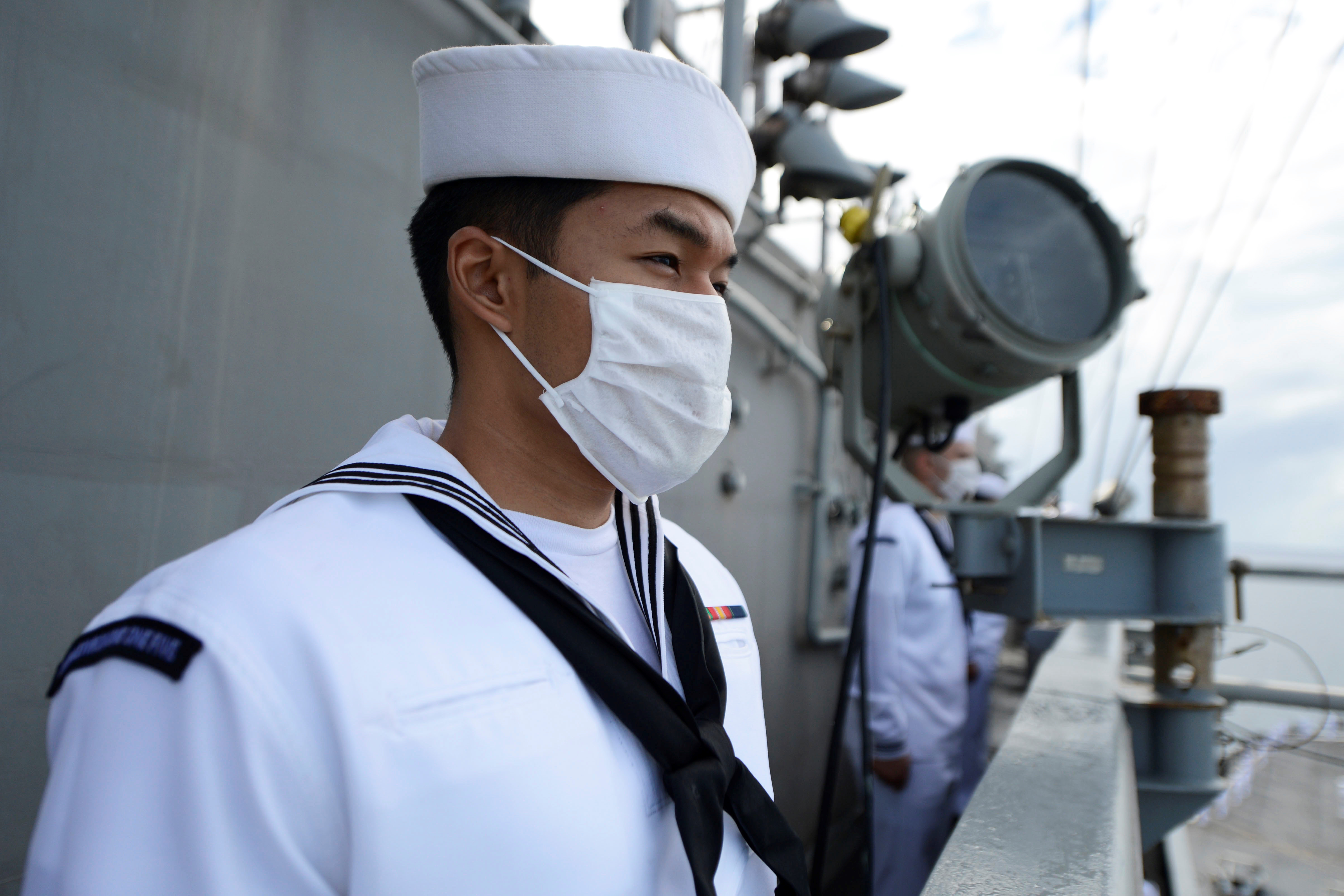Warfighter - Crew Endurance
Your Watch Begins Here
Sleep Principles to Hone your Combat Edge
You train with intensity and vigor knowing that our nation's adversaries do the same. But even a small deficit in sleep can dull your edge and erode your combat readiness. The science is incontrovertible: sleep matters. Fatigue affects every decision you make and every action you take throughout the day. When used effectively, sleep is a powerful weapon. Are you ready to Get the Edge?
Your body takes time to adapt to new demands such as a change in work/rest cycles, crossing time zones, or a new watch schedule. You also need time to recover from when you are awake for prolonged periods. As a rule of thumb, for every hour of transition, you will need one day of quality sleep for your circadian rhythm to stabilize.
Sleep Myths Debunked
Fact: Sleep disruptions are bad.
You’re better off setting the alarm for the exact time you need to get up instead of breaking up your sleep by “snoozing” between alarms.
Fragmented sleep caused by the snooze function is linked to dregraded perfomance including slowed reaction times, reduced short-term memory, and negative mood.
Fact: You may feel like you have adjusted; however, you cannot learn to need less sleep.
Lack of sleep causes your attention to lapse, your perfomance deteriorates, and you are more likely become ill.
Fact: Sleep is vital for learning and memory consolidation!
If you miss out on sleep, or if you sleep less than your normal sleep requirement, you will not be able to recall new information as well as if you had a good night's sleep.
Prepare for that exam by getting some great shut-eye!
Fact: Late night exercise, especially with bright light, can make it hard to fall asleep, but it turns out that working out doesn't interfere with everyone's sleep - it depends on the individual.
If you find that exercise in the evening revs you up too much, do it earlier in the day.
Overall, regular physical activity enhances sleep quality and duration.
Source: National Sleep Foundation
Fact: Being able to sleep anywhere, at any time, can actually be a sign of severe sleep deprivation.
People who are sleep deprived are at higher risk for work-place accidents.
Fact: Most adults require 7 to 8 hours sleep per night.
Although you may have been functioning on 5 hours or fewer sleep per night, you are likely not performing at your best.
Fact: We need extra sleep when recovering from sleep loss or while otherwise healing, but the jury is still out on the effects of long sleep times on health and mortality.
Many elite athletes extend their sleep in order to enhance their athletic performance.
Individuals vary in the amount of sleep they require; most individuals need 7 to 9 hours of sleep. The best sleep pattern is to go to bed and awaken at the same time each day.
Fact: In fact, adolescents and young adults need more sleep (8.5 to 9.25 hours per night) than adults.
The brains and bodies of adolescents and young adults are still maturing. Judgment and decision-making are at higher risk when sleep-deprived.
Fact: Hot and stuffy bedrooms are linked to worse sleep. Instead, a bedroom temperature of 60-67° F is recommended for best sleep.
Keeping your room on on the cooler side can indicate to your body that it is time to sleep.
Source: National Sleep Foundation
Fact: There is a lot of brain activity while you sleep. There are times when you are asleep where your brain is actually more active than when you are awake!
The brain cycles through two basic types of sleep (REM and Non-REM) several times during a night. Each stage linked to specific brain waves and activity.
Sleep is a period of recovery, memory consolidation, and flushing of toxins.
Source: National Institute of Neurological Disorders and Stroke
Fact: Wrong! Light, especially blue light, is a great alerting mechanism.
When exposed to bright light, melatonin (the natural sleep hormone produced in the brain) is suppressed, making it hard to fall asleep.
Become an Advocate for Crew Endurance
Here are things you can do for your command and for the Fleet:
- Become educated on the benefits of crew rest
- Use the resources on this site or contact the Crew Endurance Team at NPS for assistance
- Spread the word about the importance of crew endurance using P-4, CO Calls, social media, etc.
- Share best practices with your shipmates
- Offer to participate if your ship is a study site for the NPS Crew Endurance Team
- Become a POC/Action Officer to make sure you maintain traction with Crew Endurance efforts

Staring at a display for hours - you have to stay attentive, ... This makes it easier.
- Petty Officer 1st Class Sandra Flowers, Sonar Technician, USS TRUXTUN (DDG 103)
The 3/9 is the only watchbill I have stood – why would a ship use any other rotation?
- Ltjg Sam Braddock, USS STOUT (DDG 55)
Now I have time to get things done other than try to sleep.
- Boatwain’s Mate 3rd Class Eric Lettow, USS TRUXTUN (DDG 103)
